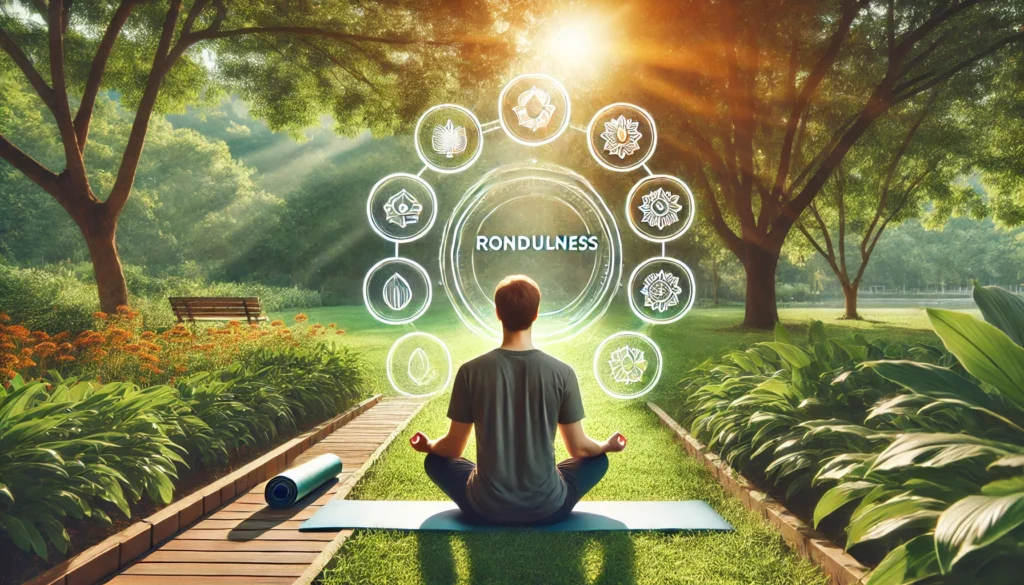In today’s fast-paced world, productivity is often regarded as the holy grail of professional success. With constant deadlines and deliverables, finding a moment of peace may seem elusive. However, incorporating meditation into your daily routine can transform your workflow by enhancing focus, productivity, and overall well-being. This article dives deep into the practice of meditation, exploring its historical roots, scientific backing, practical applications, and its promising future in the workplace.
You may also like: Mindfulness Practices to Sharpen Your Focus
The Historical Context of Meditation
Meditation has been practiced for thousands of years, with roots tracing back to ancient civilizations across the world, including in India, China, and Japan. Initially, meditation was primarily a spiritual practice, aimed at achieving enlightenment and understanding the deeper truths of existence.
Ancient Practices and Philosophies
In ancient India, meditation was a cornerstone of religious practices, deeply intertwined with Hinduism, Buddhism, and Jainism. These traditions utilized meditation to explore the nature of the mind and consciousness. Similarly, in ancient China, Taoist and Confucian philosophies incorporated meditative practices to cultivate harmony and balance within oneself and with the universe.
Evolution Through Time
As meditation spread across Asia, it evolved and adapted to different cultures and belief systems. Each region contributed unique interpretations and techniques, enriching the tapestry of meditation practices. The spread of Buddhism to Japan led to the development of Zen meditation, which emphasizes simplicity and direct experience.
Modern Integration and Relevance
In the modern era, meditation has transcended its spiritual origins and is embraced globally as a means to enhance mental clarity, emotional stability, and physical health. The integration of meditation into contemporary culture reflects its enduring relevance and adaptability, as people seek solace and balance in an increasingly chaotic world.
The Science Behind Meditation
The practice of meditation involves focusing the mind and eliminating distractions, which can lead to increased concentration and mental clarity. Scientific research has shown that regular meditation can lead to changes in brain structure and function, enhancing areas related to attention and emotional regulation.
Meditation and Brain Health
Studies utilizing functional magnetic resonance imaging (fMRI) have demonstrated that meditation can increase the density of gray matter in the brain, particularly in regions associated with memory, empathy, and stress regulation. These structural changes support improved cognitive function and emotional resilience, providing a foundation for better mental health.
Neuroplasticity and Cognitive Enhancement
Meditation promotes neuroplasticity, the brain’s ability to reorganize and form new neural connections. This adaptability enables individuals to improve cognitive functions such as attention, memory, and problem-solving skills, making meditation a powerful tool for lifelong learning and brain health.
Emotional Regulation and Stress Reduction
Regular meditation practice has been linked to enhanced emotional regulation, allowing practitioners to better manage their emotional responses to stressors. This improved regulation reduces stress and anxiety levels, contributing to a more balanced and harmonious state of being.
Focus and Productivity
Meditation for focus and productivity is supported by a growing body of evidence suggesting that it enhances attention span and reduces mind-wandering. By practicing meditation, individuals can train their minds to remain present, thereby improving task engagement and efficiency.
Attention Span and Mindfulness
Meditation cultivates mindfulness, the practice of staying present and fully engaged in the moment. This heightened awareness improves attention span and reduces the tendency to become distracted by irrelevant thoughts or stimuli, leading to more efficient task completion.
Executive Functioning and Task Management
A study published in the journal Psychological Science found that participants who engaged in mindfulness meditation demonstrated significant improvements in working memory and executive functioning, both critical components of productivity. These enhancements enable individuals to manage tasks more effectively, prioritize efficiently, and execute plans with precision.
The Role of Meditation in Creativity
Beyond improving focus and productivity, meditation also fosters creativity by encouraging a free flow of ideas and reducing mental blocks. By quieting the mind, meditation creates space for innovative thinking and problem-solving, making it an invaluable tool for professionals in creative fields.

Practical Meditation Habits to Enhance Productivity
To harness the benefits of meditation, consistency is key. Here are some practical meditation habits to incorporate into your daily routine:
Morning Mindfulness
Start your day with a brief meditation session. Even five to ten minutes of mindfulness practice can set a positive tone for the day, improving focus and setting clear intentions for your tasks ahead. This practice helps cultivate a sense of calm and readiness, empowering you to tackle challenges with clarity.
Creating a Morning Ritual
Incorporate meditation into your morning routine by creating a dedicated space and time for practice. Whether it’s a quiet corner of your home or a serene spot in nature, establishing a consistent environment helps reinforce the habit and enhances the overall experience.
Setting Intentions for the Day
Use your morning meditation session to set intentions for the day, aligning your actions with your goals and values. This intentional approach fosters a sense of purpose and direction, guiding you through your daily tasks with focus and determination.
Focused Breathing
During work breaks, engage in focused breathing exercises. This practice helps in resetting your mental state and reducing stress, enabling you to return to work with renewed energy and concentration. Focused breathing is a simple yet powerful technique that can be practiced anywhere, anytime.
Techniques for Focused Breathing
Experiment with different breathing techniques, such as diaphragmatic breathing or the 4-7-8 method, to find what works best for you. These techniques can quickly calm the nervous system, lower stress levels, and enhance mental clarity.
Incorporating Breathing Breaks into Your Day
Schedule regular breathing breaks throughout your workday to maintain a steady flow of energy and focus. These short, intentional pauses can prevent burnout and keep you refreshed and engaged in your tasks.
Mindful Transitions
Use transitions between tasks as moments for mindfulness. Take a few deep breaths and recenter your attention before moving from one task to another. This habit can prevent the accumulation of stress and maintain a steady workflow, allowing you to navigate your day with ease and efficiency.
Integrating Mindfulness into Daily Activities
Incorporate mindfulness into everyday activities, such as walking or eating, to create a seamless flow of presence and awareness. This integration fosters a holistic approach to mindfulness, enriching both your professional and personal life.
The Impact of Mindful Transitions on Workflow
Mindful transitions can significantly impact your workflow by reducing stress and enhancing focus. By approaching each task with a fresh perspective and renewed energy, you can maintain a consistent level of productivity throughout the day.
Current Trends in Meditation
The digital age has ushered in new trends in meditation, making it more accessible than ever. Meditation apps such as Headspace, Calm, and Insight Timer offer guided meditations, mindfulness exercises, and community support for practitioners of all levels.
The Rise of Meditation Apps
The proliferation of meditation apps reflects a growing demand for convenient and flexible meditation solutions. These apps provide users with a variety of options, from short guided sessions to longer, more immersive experiences, catering to different needs and preferences.
Features and Benefits of Popular Apps
Explore the features and benefits of popular meditation apps to find one that aligns with your goals and lifestyle. Many apps offer personalized meditation plans, progress tracking, and community forums, enhancing the overall experience and fostering a sense of connection and accountability.
Accessibility and Inclusivity in Meditation
The digitalization of meditation has made the practice more accessible and inclusive, breaking down barriers related to time, location, and cost. This accessibility empowers a diverse range of individuals to explore meditation and experience its benefits, regardless of their background or circumstances.
Virtual Meditation Communities
The rise of virtual meditation communities has created spaces for like-minded individuals to connect, share experiences, and support one another in their meditation journeys. These communities foster a sense of belonging and encourage continuous learning and growth.
Online Meditation Challenges and Events
Participate in online meditation challenges and events to deepen your practice and connect with a global community of practitioners. These initiatives provide opportunities for collaboration, inspiration, and mutual support, enriching your meditation journey.
The Role of Social Media in Meditation Awareness
Social media platforms play a significant role in raising awareness and promoting meditation practices. By sharing insights, tips, and success stories, individuals and organizations contribute to a broader conversation about the benefits of meditation and its transformative potential.

Future Implications of Meditation in the Workplace
As the benefits of meditation become increasingly recognized, organizations are beginning to integrate mindfulness programs into their workplace cultures. Companies such as Google, Apple, and General Mills have implemented meditation and mindfulness initiatives, recognizing their potential to enhance employee well-being and productivity.
Meditation and Corporate Culture
Incorporating meditation into corporate culture can lead to a more focused, engaged, and resilient workforce. By providing employees with tools to manage stress and improve concentration, companies can foster an environment conducive to innovation and collaboration.
The Business Case for Mindfulness Programs
Mindfulness programs offer a compelling business case, with potential benefits such as reduced absenteeism, lower healthcare costs, and increased employee satisfaction. By investing in employee well-being, companies can create a thriving workplace culture that attracts and retains top talent.
Strategies for Implementing Workplace Meditation Programs
Explore strategies for implementing workplace meditation programs, from offering guided sessions and workshops to creating designated meditation spaces. Tailor these initiatives to meet the unique needs and preferences of your workforce, ensuring maximum engagement and impact.
Measuring the Impact of Meditation on Employee Performance
Develop metrics to assess the impact of meditation programs on employee performance, such as productivity levels, stress reduction, and job satisfaction. These insights can guide future initiatives and demonstrate the value of mindfulness in the workplace.
Real-World Examples of Meditation’s Impact on Productivity
Consider the case of Aetna, a leading healthcare company that implemented a mindfulness program for its employees. Participants reported a significant reduction in stress levels and an increase in overall productivity. The program not only improved employee well-being but also enhanced the company’s bottom line by reducing healthcare costs and increasing efficiency.
Success Stories from Leading Organizations
Explore success stories from leading organizations that have embraced meditation and mindfulness practices. These real-world examples highlight the transformative impact of meditation on productivity, employee morale, and organizational culture.
Lessons Learned from Corporate Meditation Initiatives
Analyze the lessons learned from corporate meditation initiatives to identify best practices and potential challenges. By understanding these insights, organizations can refine their approaches and maximize the benefits of meditation programs.
The Role of Leadership in Promoting Mindfulness
Leadership plays a crucial role in promoting mindfulness within organizations. By modeling mindful behavior and championing meditation programs, leaders can inspire a culture of well-being and productivity that resonates throughout the company.

Practical Advice for Getting Started
For those new to meditation, getting started can seem daunting. Here are some tips to ease your way into a meditation habit:
Start Small
Begin with short sessions of 5-10 minutes and gradually increase the duration as you become more comfortable with the practice. Starting small allows you to build confidence and develop a sustainable meditation routine without feeling overwhelmed.
Finding Your Meditation Style
Explore different meditation styles, such as mindfulness, loving-kindness, or transcendental meditation, to discover what resonates with you. Each style offers unique benefits and techniques, allowing you to tailor your practice to your preferences and goals.
Overcoming Initial Challenges
Acknowledge and address common challenges faced by beginners, such as restlessness or difficulty focusing. By practicing patience and self-compassion, you can navigate these obstacles and cultivate a rewarding meditation experience.
Create a Routine
Incorporate meditation into your daily schedule at a time that works best for you, whether it’s in the morning, during lunch, or before bed. Establishing a routine reinforces the habit and helps integrate meditation into your lifestyle seamlessly.
Designing a Meditation Space
Create a dedicated meditation space that reflects your personal style and preferences. This space can serve as a sanctuary for relaxation and reflection, enhancing the quality of your meditation practice.
Building Consistency Through Accountability
Seek accountability through meditation groups, challenges, or partners to maintain consistency in your practice. By sharing your journey with others, you can stay motivated and inspired to continue exploring meditation.
Be Patient
Meditation is a skill that develops over time. Be patient with yourself and embrace the journey of growth and self-discovery. Remember that meditation is a personal practice, and progress may vary from person to person.
Embracing the Process of Self-Discovery
View meditation as an opportunity for self-discovery and personal growth. By embracing the process, you can uncover new insights and develop a deeper understanding of yourself and your potential.
Celebrating Milestones and Progress
Acknowledge and celebrate milestones and progress in your meditation journey. These moments of achievement can boost your confidence and motivation, reinforcing your commitment to the practice.
Explore Resources
Utilize books, online courses, and apps to guide your practice and expand your understanding of meditation techniques. Accessing a variety of resources allows you to deepen your knowledge and refine your meditation skills.
Recommended Books and Courses
Discover recommended books and courses that offer valuable insights and guidance on meditation practices. These resources can enhance your understanding of meditation and provide practical tips for integrating it into your daily life.
Leveraging Technology for Meditation Growth
Embrace technology to support your meditation journey, from apps and online communities to virtual retreats and workshops. These digital tools can enrich your practice and connect you with a global network of meditation enthusiasts.
Conclusion
The integration of meditation into your daily routine offers a pathway to enhanced focus, productivity, and well-being. By adopting meditation habits, you can transform not only your workflow but also your approach to life’s challenges.
As you embark on this journey, remember that meditation is a personal practice. Experiment with different techniques and find what resonates with you. With time, you’ll discover the profound impact that meditation can have on your professional and personal life.
Meditation is not merely a tool for relaxation; it is a powerful ally in achieving clarity, purpose, and excellence in all endeavors. By embracing meditation, you can unlock your potential and transform your workflow for the better, creating a more fulfilling and balanced life.
Further Reading:
Meditation for Productivity and Concentration
4 Ways Meditation Increases Your Productivity and Wellness
Important Note: The information contained in this article is for general informational purposes only, and should not be construed as health or medical advice, nor is it intended to diagnose, prevent, treat, or cure any disease or health condition. Before embarking on any diet, fitness regimen, or program of nutritional supplementation, it is advisable to consult your healthcare professional in order to determine its safety and probable efficacy in terms of your individual state of health.
Regarding Nutritional Supplements Or Other Non-Prescription Health Products: If any nutritional supplements or other non-prescription health products are mentioned in the foregoing article, any claims or statements made about them have not been evaluated by the U.S. Food and Drug Administration, and such nutritional supplements or other health products are not intended to diagnose, treat, cure, or prevent any disease.


